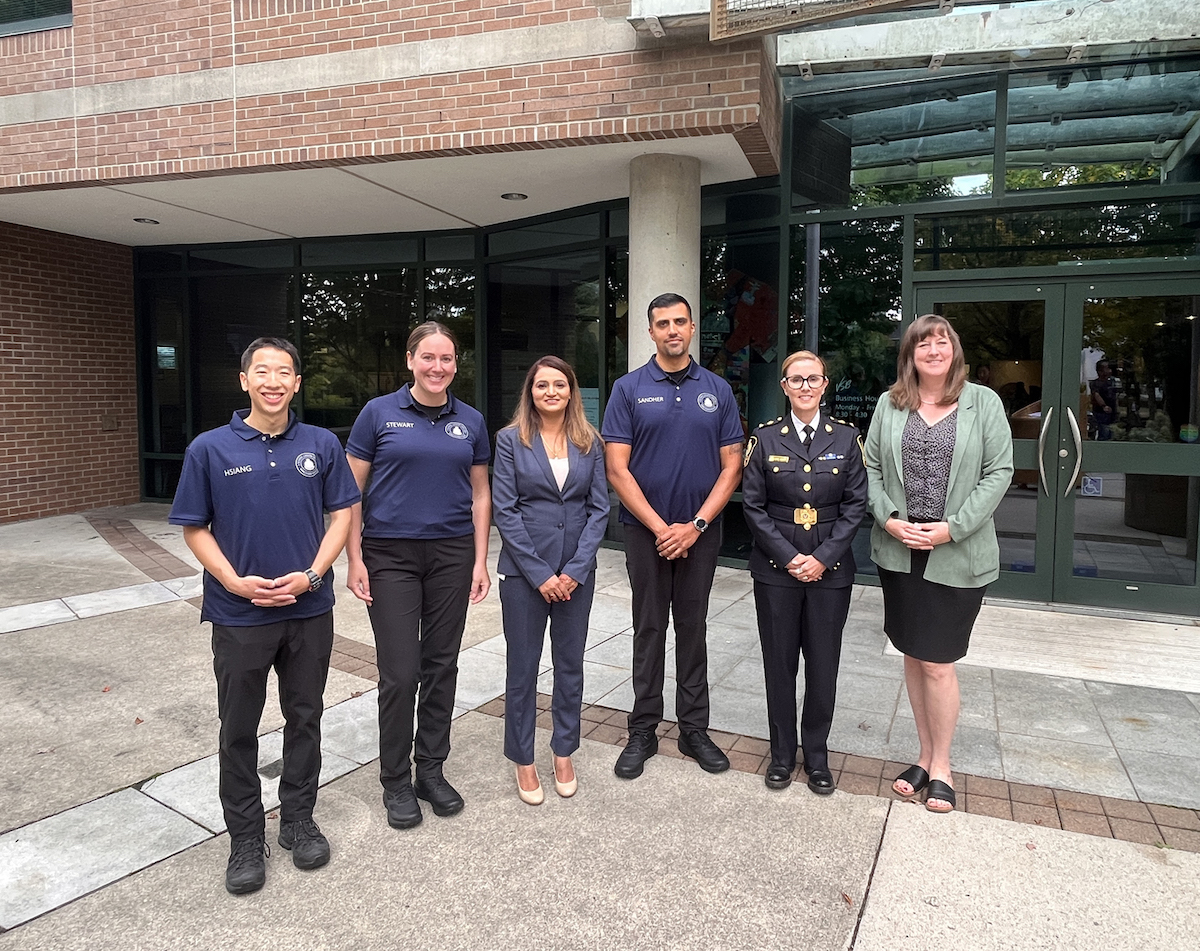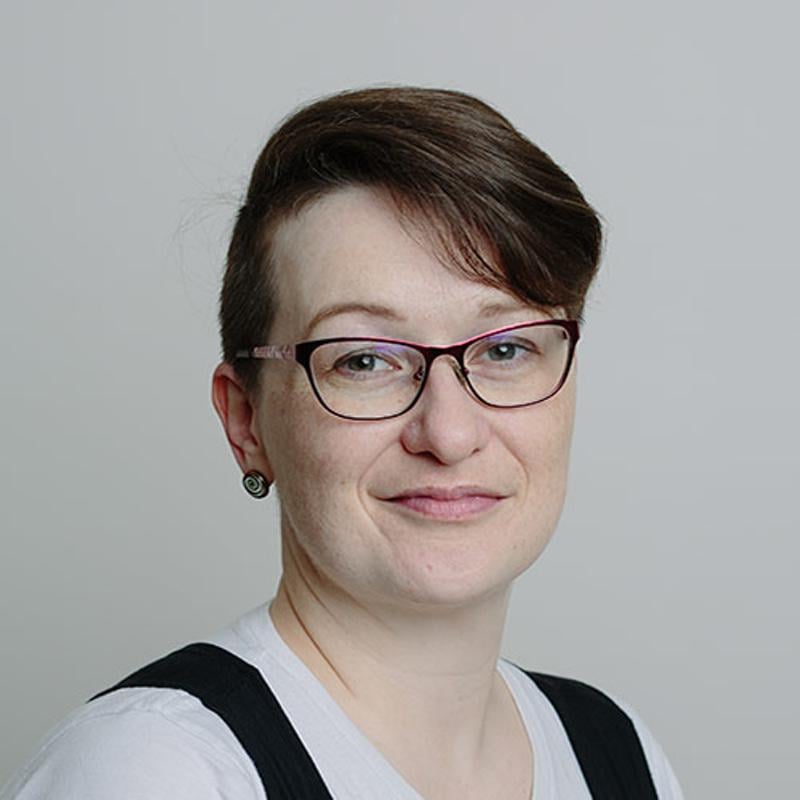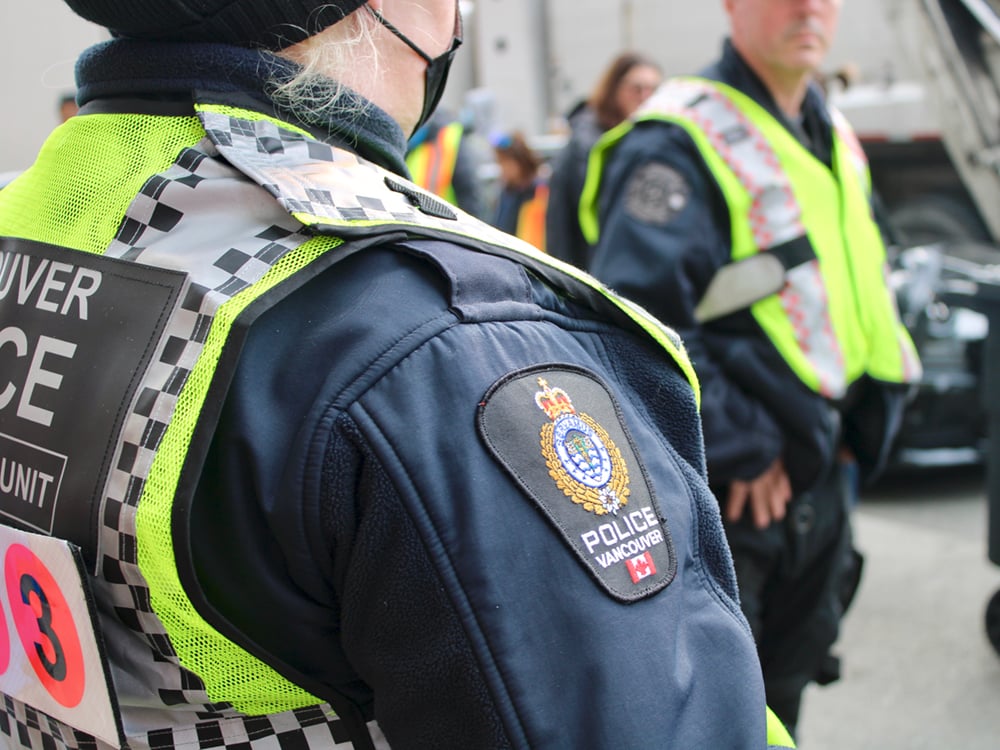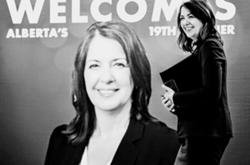During last April’s Vancouver Police Board meeting, Insp. Gary Hiar laid out data showing an increase in calls to the police department from Vancouver public schools following the cancellation of the school liaison officer program by the Vancouver School Board in the spring of 2021.
“We do know that since they haven’t been in schools, that calls for service have increased by 16 per cent, and specifically when it comes to violent crimes, those have gone up by 19 per cent, and with weapons-related calls they have gone up 50 per cent,” Hiar said, using data from 2022.
But police call data from Vancouver public school locations, obtained by The Tyee from the Vancouver Police Department through a freedom of information request, shows a much more nuanced pattern of police calls made from the city’s public schools.
The school liaison officer program, which saw police officers stationed at each of the district’s 17 secondary schools and visiting their feeder elementary schools, ran for nearly 50 years before it was cancelled.
In June, Deputy Chief Const. Fiona Wilson told the board there has been an increase in youth-related violence since police were removed from schools, citing an overall decrease in calls to police from secondary schools until 2022 — the first full year school liaison officers were not in schools.
The data paints a picture that is less clear-cut. For example, while calls to police from secondary schools did go up in 2022, calls from elementary schools actually decreased by 22 per cent between 2021 and 2022.
Compared with 2021, 2022 call numbers for secondary schools increased for theft (45 calls, up from 26), weapon (15 calls, up from 10), break and enter (17 calls, up from one), crimes against a person (61 calls, up from 48) and a section called “other calls,” (245 calls, up from 209) which comprises 34 call types ranging from “missing person” to “annoying circumstances.”
But there were also categories where calls from secondary schools decreased between 2021 and 2022, such as mischief (eight calls in 2022, down from 25 calls in 2021), disturbance/suspicious activities (86 calls in 2022, down from 91 in 2021) and drug/substance abuse (three calls in 2022, down from four in 2021).
Overall, the 480 calls from secondary schools made in 2022 were higher than the 414 calls from secondary schools made to police in 2021.
But they were much lower than the 505 calls made from secondary schools in 2020; 727 calls in 2019; 902 calls in 2018; and 1,222 calls in 2017 — all years that school liaison officers were stationed in Vancouver secondary schools.
The call data, which covers Jan. 1, 2015, to June 30, 2023, is broken down by calendar years. School years, however, run from September until June.
Therefore, it is difficult to extrapolate what impact the removal of police six months into the calendar year had on the 2021 call data.
The 2023 data made available to The Tyee included only Jan. 1 to June 30, so it was not possible to draw conclusions about the lack of police officers in schools from that data.
So 2022 is the only full calendar year that Vancouver public schools did not have a consistent police presence.
The call data, which is based on the address the call came from, does not show how many of the calls made to the VPD resulted in officers being deployed to schools, whether investigations were conducted or if any charges were laid.
The call data also doesn’t include whether the calls were made during school hours, or who made the calls.
Unanswered questions
The Tyee requested an interview with Deputy Chief Const. Fiona Wilson about the call data, as well as how the new school liaison officer program would work in collaboration with the Vancouver School Board’s Safe and Caring Schools Department. Wilson was not made available for the interview.
At the VPD’s request, The Tyee instead sent questions about the call data by email, including:
- the VPD’s decisions around which data to highlight publicly and why;
- how many calls were made during school hours;
- how many calls resulted in officer deployment, police investigations, diversions of students to youth justice programs or criminal charges, or criminal convictions;
- what impact the COVID pandemic and its effect on youth mental health may have had on calls to schools;
- which schools made the most calls to police;
- why call numbers were previously so high under the former school liaison officer program;
- how many investigations by SLOs have happened so far this school year; and
- how the SLO program is working with the Vancouver School Board’s Safe and Caring Schools Department.
The VPD did not respond to The Tyee’s questions by press time.
The Tyee also requested an interview with school district superintendent Helen McGregor to discuss the call data, but she was not made available.
However, a district communications staff member noted the district does not keep track of calls schools make to police or the reason for calls. The staff member instead directed The Tyee to send this query to the VPD.
The Tyee also requested interviews with Vancouver Secondary Teachers' Association president Terry Stanway and representatives from the Vancouver Association of Secondary School Administrators and the Vancouver Elementary Principals and Vice-Principals Association — the latter two organizations spoke in favour of returning police to schools last year — for interviews about the call data and decrease in overall calls to police since 2015.
Ankie Carswell and Brigitte Biorn, recent former presidents of the Vancouver Elementary Principals and Vice-Principals Association, did not respond directly to our interview request. Instead they contacted the Vancouver School Board’s communications team, who told The Tyee the association did not have information to provide.
Neither Stanway nor representatives from the Vancouver Association of Secondary School Administrators responded to our interview requests.
Both of the teachers’ union locals in Vancouver spoke against the return of police officers to district schools. But only the Vancouver Elementary and Adult Educators' Society responded to our interview request.
One interpretation of the trend in declining calls
Vancouver Elementary and Adult Educators' Society president Jody Polukoshko told The Tyee that “consciousness raising” about the impact of policing on marginalized communities had contributed to the steady decline of calls from elementary schools since 2020.
“The elementary school teachers took a position before the SLO program was concluded, that we did not support and would not invite police officers into schools,” said Polukoshko, adding past reasons to invite police to schools included talks with students about crosswalk safety, crime and drugs.
This position, Polukoshko said, “helped to transition away from policing into needs-based support for students.”
But it is typically school administrators, not teachers, who make the decision about whether to call police for immediate assistance or to report a crime, she said.
The society’s position doesn’t prevent administrators from calling police in an emergency, Polukoshko said. “But we have always said that most of the issues that are currently dealt with through the police would be better dealt with with increased services to students: more counselling, community outreach workers, youth and family workers, support workers.”
The cancellation and return of SLOs in Vancouver
The cancellation of the school liaison officer program in the spring of 2021 came after a public consultation process that found the majority of those consulted were neutral towards or in favour of police in schools.
However, the consultations, which were supposed to centre the experiences of Black and Indigenous people, also found 60 per cent of Black respondents and 50 per cent of Indigenous respondents were not in support of a program that stationed police officers in schools.
A Better City Vancouver, the municipal political party better known as ABC Vancouver that swept the 2022 election to control the city council, school board and park board, campaigned in part on putting cops back in schools.
A motion to begin that process by sending an invitation to the Vancouver Police Department to begin working together on a new school liaison officer program was introduced by ABC Vancouver school board trustee Preeti Faridkot in late November 2022.
Four days after the B.C. human rights commissioner called on all B.C. school districts to cancel their SLO programs until an empirical study on their impact could be conducted, all four ABC Vancouver trustees voted in favour of Faridkot’s motion.
They were joined by Christopher Richardson, an independent trustee who began the election campaign as an ABC candidate before he was ejected from the party. Richardson, who was on the Vancouver School Board from 2014 to 2016, was also a special traffic constable for the VPD for over 40 years. His vote made it a 5-4 decision in favour of inviting the VPD to work together on restarting the program.

Police officers returned to secondary schools this past September. Instead of wearing police uniforms, driving marked police cars and being visibly armed with weapons, the 17 officers now stationed in schools wear VPD-branded athletic gear, have concealed weapons and drive unmarked police vehicles.
Deputy Chief Const. Fiona Wilson told the Vancouver Police Board in June that new SLOs will receive additional and ongoing trauma-informed, cultural awareness, Indigenous awareness and restorative justice training, as well as collaborative learning, information sharing and communication with public school district staff. Despite the VPD’s claims to the contrary, officers in the previous SLO program received no special training for their positions. ![]()
Read more: Rights + Justice, Education, Municipal Politics

















Tyee Commenting Guidelines
Comments that violate guidelines risk being deleted, and violations may result in a temporary or permanent user ban. Maintain the spirit of good conversation to stay in the discussion and be patient with moderators. Comments are reviewed regularly but not in real time.
Do:
Do not: